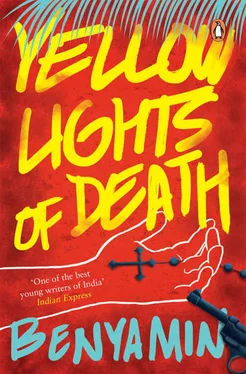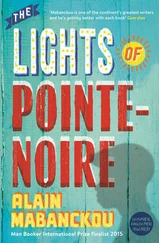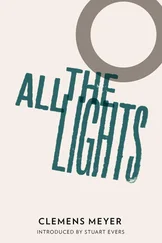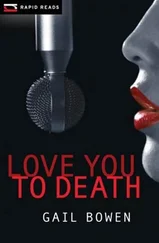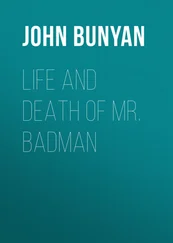There were four, five other scraps. Random greetings that didn’t deserve a reply. But one of them was from Bilal: ‘I’ve sent a mail. Make sure you read it.’ I wasn’t too pleased to see it. When he had come to Diego, I’d tried to meet him. His response had been disheartening. Even the mention of Senthil’s death was turned into a joke. Why this mail now? I opened it half-heartedly.
Christy, I ignored your calls and gave you the cold shoulder because of a misunderstanding. If an old friend or a relative who hadn’t been keeping touch makes a call to an expat in town, it is because he is a salesman of insurance or mutual funds. This has been proved right a hundred out of hundred times. I’ve been proved wrong only in your case. I initially thought that you were calling me to trap me in some such venture. It was later that Rahim said you weren’t involved in any fraud, and that you were actually a writer. I’m sorry. We’ll meet next time I come. Oh, I didn’t tell you — I’ve left Australia for France. Higher studies. Let me tell you, you should say goodbye to your novelist ambitions and come to France and study some more. This is a good time for that. I am pursuing my education here with the money I made working for those four or five years in Australia. In your case, I know money won’t be an issue. France was my dream, that’s why I came here. If you are coming, please let me know. I’ll arrange everything. Stop loafing around. Get serious.
Another bit of news — the Sri Lankan in our class, Jesintha, I met her in Paris out of the blue. She was with a foreigner. Perhaps her husband. I was standing in a queue at the Louvre. Though I went and talked to her, she couldn’t recognize me. Or maybe she was pretending she couldn’t. You mentioned that you meet her often. Is that true? Then please find out if it was indeed her that day. Do reply. Apologies again for the misunderstanding.
Bilal
Jesintha. In Paris? Could be true. She had chosen to enjoy life. She could do anything. Go anywhere. Maybe that’s how she made a living. No one can become so prosperous in such a short time. It’s shameful to ask about that. So I decided not to go to Port Louis in the near future. If I met her, I’d end up asking her. That’s the kind of person I am. But it’s human nature to contradict one’s own decisions. I said to myself, I don’t have to see Jesintha, but I have to go to Port Louis. I have to go there, sit in that chair, have coffee. But if I saw her, I’d feel compelled to ask about Paris, so I controlled myself for two days. On day three, I went to Port Louis.
I parked my boat at the private jetty and was walking past St. Martin Church on my way to Port Louis when someone stopped me.
‘Don’t you know me?’
I couldn’t place him.
‘Shivasankar. Tamil writer. Remember, we were together at the Parana literary group?’
‘Oh, yes, sorry, now I remember. Where are you now? And how is the writing?
‘I wrote two novels. Neither did well. Now I’m into scripts. I write television serials for two channels in Madras. Anyway, did you hear about Mohandas? The Malayali. He’s won the prize for the best novel of the year given by Pentasia This Month . I, too, had submitted my work but got nothing. There are huge celebrations for him all over the place. A magazine has published four full pages about him and his novel.’
Shivasankar gave me his number before he parted. ‘We should meet again, call me soon.’
He left me crushed. Mohandas! An award for his novel! That too for the first Malayalam novel from Diego! I, too, had plans to make a submission. As my work drags on and stretches into infinity, a guy who had started his writing career with me bags the award. When he had mentioned it to me, I didn’t take it seriously. I thought I had more talent and scholarship than he had. But my writing hadn’t achieved much. I had filled my head with unnecessary issues and killed my days of productivity. Nobody was going to ask me why I hadn’t probed the reasons behind Senthil’s murder. But at least my father would ask me what I’d achieved with my literary life, what I’d contributed to Malayalam literature.
I headed straight to a bar in Seleucia and drank heavily. Danced with the bar girls. Bragged that I was Andrapper and that I was working on a novel, a masterpiece about Diego’s history. I thumped my chest and declared the novel would win the Booker or the Pulitzer, not some puny local award. I think I even made a bar girl sit with me and narrated the novel. I made her hold my hand, kiss it and say, ‘These are not man’s fingers, but God’s fingers.’ And throughout the escapade, I was burning with envy for Mohandas. I tried to mollify myself with arguments that there would be other opportunities to win awards, that awards were not the last word on anything, that the greatest works never received awards.
However, I could not convince myself. If I could have got hold of Mohan then, I would have drowned him in the sea. I felt such wrath! Then, when I was about to pass out, I called Mohan. I wanted to curse him, but I showered him with hollow praise. I told him that he had made the Malayalis of Diego proud, that he should write more, and that I was especially proud of him.
Mohandas invited me to the award ceremony the next week. I promised that I’d be in the front row. I kept on talking. I made compliments that, in recollection, make me cringe. I finally disconnected the phone and spat. All my fury was packed in the sputum.
Andrapper
MY NOVEL HAD come to a halt. So had the investigation into Senthil’s murder. Questions about the future led me to research the Andrapper family’s history. For that I went to the forefathers’ vault, sometimes with the permission of Valyapapan, sometimes without his knowledge. I spent hours and days there. I dived into the relics of Andrapper history. I dug out letters written during various periods, government records, travelogues, citations, business deals and memoirs. I studied them in detail. The family history I deciphered from them could be summarized as follows.
Among the crew of the renowned explorer Vasco da Gama, the man who had changed the history of the Indian subcontinent, was a common Portuguese sailor named Andrew Pereira. It is said that Andrew Pereira found Kerala to be a dreamland, and it took him only a few days to learn to speak Malayalam. He thus became the first European to master the language.
For the same reason, Andrew Pereira was also part of the crew of Pedro Álvares Cabral, who came to the mainland after da Gama. It was on that trip that Andrew became an influential person in the land. He was designated by Cabral to accept the reception and gifts from the then Kochi ruler Unnirama Varma Koyithamburan. His knowledge of Malayalam so impressed the king that Andrew not only won his heart, but also his permission for Portuguese shops to be set up for business. He became the chief of trade henceforth.
On Vasco da Gama’s next voyage to Kochi, Andrew was accompanied by his wife Diarus Katrina and son Diego Pereira. As soon as he landed, he met Unnirama Varma Koyithamburan and conveyed his wish to settle in this beautiful land with his family. The king was facing troubles from his local rival, the Samoothiris, and hence was more than pleased to welcome a Portuguese commander. He endowed a grandiose house in Kochi and some plots around it to the Pereira family.
After that, Andrew Pereira acted as a mediator and translator in all the trade deals between the king and the Portuguese. Meanwhile, the king wished to train his army in western-style warfare. So, Pereira took over the additional responsibility of training the Nair infantry. Within days, he became closer to the king and won the respect of the Nair brigade. He never abandoned the spices of Kochi and life in Kerala. The descendants of Andrew Pereira — the one who came from Portugal’s Lisbon to win the heart of the king and of the natives of Kochi, to live and die there — constituted the Andrapper dynasty.
Читать дальше
